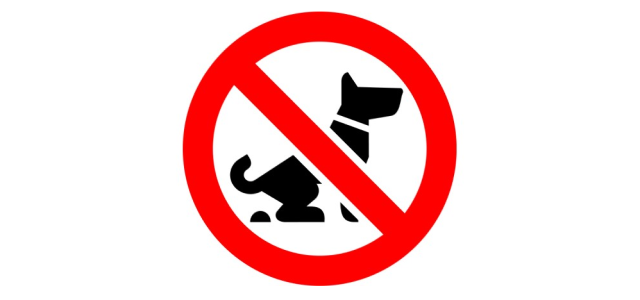 When dogs and whiskey are involved, it might be time to listen to the Supreme Court. On March 22, 2023, the Court held oral arguments for Jack Daniel’s Properties Inc. v VIP Products. For months, litigation over “Bad Spaniels” has sparked questions about the intersection of trademark law and the First Amendment. Designed to look like a Jack Daniel’s bottle with cheeky labels of “The Old No. 2” and “on your Tennessee Carpet,” the dog toy in dispute may leave quite the aftertaste for the future legal treatment of expressive works and the Rogers test, originally created by the Second Circuit in Rogers v. Grimaldi, 875 F.2d 994 (2d Cir. 1989).
When dogs and whiskey are involved, it might be time to listen to the Supreme Court. On March 22, 2023, the Court held oral arguments for Jack Daniel’s Properties Inc. v VIP Products. For months, litigation over “Bad Spaniels” has sparked questions about the intersection of trademark law and the First Amendment. Designed to look like a Jack Daniel’s bottle with cheeky labels of “The Old No. 2” and “on your Tennessee Carpet,” the dog toy in dispute may leave quite the aftertaste for the future legal treatment of expressive works and the Rogers test, originally created by the Second Circuit in Rogers v. Grimaldi, 875 F.2d 994 (2d Cir. 1989).
Years ago, VIP Products sought a declaration of non-infringement after receiving a cease and desist letter from Jack Daniel’s. In response, the whiskey company raised counterclaims including trademark infringement and dilution by tarnishment. While the District of Arizona initially ruled in favor of the Jack Daniel’s, various appeals eventually led to a judgment in favor of VIP Products. Ultimately reversing the district court’s initial findings, the Ninth Circuit found no trademark violations, holding that the Bad Spaniels dog toy is an expressive work entitled to First Amendment protection. The court concluded that Jack Daniel’s could not satisfy either prong of the Rogers test, which balances free expression under the First Amendment against the trademark protections of the Lanham Act. Under the Rogers test, a plaintiff’s infringement claim will succeed if the use of the mark either (1) has no artistic relevance to the underlying work, or (2) explicitly misleads as to the source or content of the work. The Ninth Circuit, in concluding that Bad Spaniels was an expressive work, did not apply the traditional likelihood of confusion test.
 With both First Amendment and trademark law implicated, the Supreme Court decided to bite after all of the barking. Granting certiorari, the Supreme Court was tasked with navigating the issues of whether parody use of a trademark warrants First Amendment protection from liability under the Lanham Act and whether parody is exempt from claims of dilution by tarnishment. The justices expressed colorful thoughts about the dog toy in discussing whether it warranted First Amendment protection. Between hypotheticals and laughs, the justices pondered whether Bad Spaniels constitutes a parody, as well as whether it is expressive or purely commercial and whether it has confused a substantial number of consumers. With multiple issues at play, the high court was filled with varied viewpoints. Justice Kagan saw Bad Spaniels as an ordinary commercial product and showed a reluctance to abandon the Rogers test—a reluctance also shared by other justices. Justice Jackson, reading the Lanham Act as concerned with confusion about the origin of a good or service, posited that the facts fell outside the scope of the First Amendment. On the other hand, Justice Alito seemed convinced that Bad Spaniels would not be confusing to any reasonable consumer. Broadly, the justices exhibited interest in determining how to identify whether a work is explicitly misleading or expressive, as well as a preference for preserving the Rogers test in some form.
With both First Amendment and trademark law implicated, the Supreme Court decided to bite after all of the barking. Granting certiorari, the Supreme Court was tasked with navigating the issues of whether parody use of a trademark warrants First Amendment protection from liability under the Lanham Act and whether parody is exempt from claims of dilution by tarnishment. The justices expressed colorful thoughts about the dog toy in discussing whether it warranted First Amendment protection. Between hypotheticals and laughs, the justices pondered whether Bad Spaniels constitutes a parody, as well as whether it is expressive or purely commercial and whether it has confused a substantial number of consumers. With multiple issues at play, the high court was filled with varied viewpoints. Justice Kagan saw Bad Spaniels as an ordinary commercial product and showed a reluctance to abandon the Rogers test—a reluctance also shared by other justices. Justice Jackson, reading the Lanham Act as concerned with confusion about the origin of a good or service, posited that the facts fell outside the scope of the First Amendment. On the other hand, Justice Alito seemed convinced that Bad Spaniels would not be confusing to any reasonable consumer. Broadly, the justices exhibited interest in determining how to identify whether a work is explicitly misleading or expressive, as well as a preference for preserving the Rogers test in some form.
Juggling trademark concerns with the right of free expression, the Supreme Court was clear in its sensitivity toward invoking the First Amendment. That said, a reversal of the Ninth Circuit’s decision would not be surprising in light of precedent and the repeated characterization of Bad Spaniels as an ordinary commercial product. Distinguishing the dog toy from more traditional artworks, the justices appeared unwilling to give heightened First Amendment protection. Although the Supreme Court may defer to precedent with respect to the First Amendment, we may see some adjustment to the application of the Rogers test. Accordingly, a shift in the commercial landscape is foreseeable—a prospect not lost on the major brands who filed amicus briefs in this case. While awaiting the Supreme Court’s decision, companies of all sizes may want to reconsider how they approach brand protection and disputes regarding parody products. No matter who gets chewed out in the end, whiskey will certainly be pouring.
Written by Jeff Handelman, Partner and Kyle Pham, Associate, Crowell & Moring











